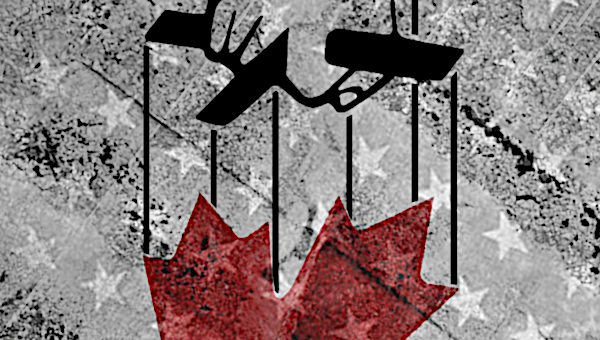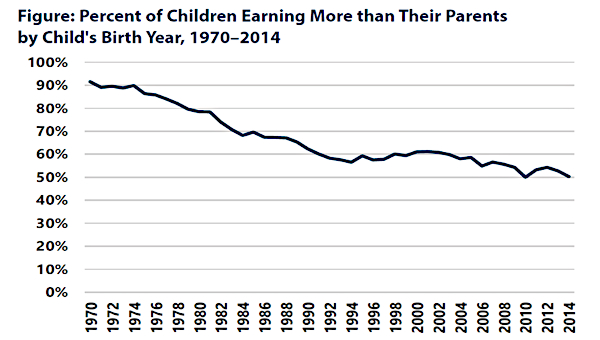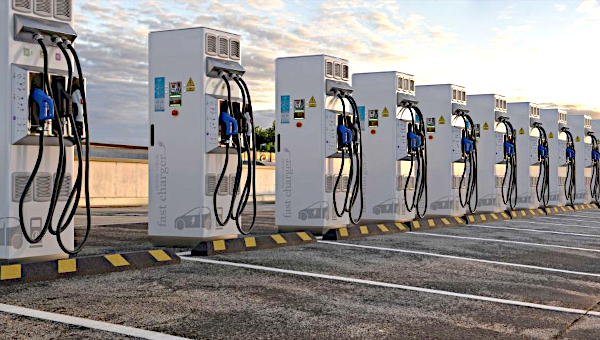‘An Offer You Can’t Refuse’: Trump Sends Canada a Wake-up Call
An all-too predictable pattern has emerged in US-Canada relations. US President Donald Trump makes Canada ‘an offer it can’t refuse’. What follows is a national gnashing of teeth, flag-waving, businesses and politicians going patriotic. The Canadian government then caves, lamenting we had ‘no choice’.
What would it take to truly have a choice? An end to Trump’s on-again, off-again tariff ultimatums would obviously be welcome, but our previous ‘normal’ was never actually all that great, and it misses the larger point. Our quandary doesn’t lie in this or that policy conflict but something far deeper: unless we break out of this never-ending story by considerably delinking from the US – soberly, of course, and necessarily over time – we’re stuck with the fatalism of having ‘no choice’.
Canadians understand full well that it is our sovereignty that is at stake. But we differ on where this might take us. Talk of Canada becoming America’s 51st state is a red herring; it is not Canada’s formal sovereignty that is in danger. What we confront is the drip-by-drip erosion of our substantive sovereignty: the loss, already well under way, of democratic capacities to determine the kind of society we hope to build.

Trump’s Demand to Rescind the Digital Services Tax
The latest expression of this threat emerged over Canada’s digital service tax, a levy on wealthy tech corporations based elsewhere – primarily in the US – but generating large revenues and profits through digital social platforms operating in Canada. First proposed in the 2022 election, it was implemented last year, and its collection was about to start when Trump stepped in with another ‘offer you can’t refuse’: if Canada doesn’t rescind the tax, negotiations on easing US tariffs are off.
Prime Minister Mark Carney’s Liberal Party proved too timid to tell Trump that Canadian taxes would be decided by Canadians. Neither did they dare remind Trump that the UK, Spain, Italy, and France also have such a tax – so what’s the big deal? And they certainly weren’t ready to point out his hypocrisy in complaining about taxes on US corporations operating abroad, when his own tariffs on Canada are essentially a tax on corporations that includes American companies like GM who operate in Canada and ship back to the US.
Earlier, Trump had weaponized tariffs to strong-arm Canada into dramatically increasing its military spending. Like most NATO members, Canada fell short of America’s-prescribed target. Trump not only insisted on total compliance but raised the standard so Canada would have to triple its expenditures. Canada meekly found the money. The government couldn’t earlier find the funds for improving gaps in Canada’s healthcare system, expanding public housing, or addressing the environment. But when the US barks, what was formerly out of the question becomes all too doable.
Bravado declarations that Canada will out-compete the Yankees, like that made by the Conservative Party leader, Pierre Poilievre, during the last election, obscure this truth. Not only is his response far-fetched given America’s size, technological lead, and enormous military subsidies to high tech. But even if Canadian capital ‘won’ in specific areas, the US has clearly demonstrated its readiness to change the rules as it sees fit.
Breaking from Deep Integration with the US
Most importantly, mimicking the US and prioritizing competition and profits overall reduces Canada to a pale imitation of the US. It is a trap. Yet breaking from the reality of Canada’s deep integration into US markets and production networks will be risky, disruptive, and divisive. The point about long-standing over-dependence is that you can’t snap your fingers and suddenly end it.

Meaningful de-linking by states to expand democratic controls means diversifying trade, shifting to greater inward development, reorienting internal social priorities to equality, developing new collective capacities, rebuilding and converting the economy and fixed capital stock to cope with the environmental crisis and mitigate, in the interim, the impact of extreme weather events from global warming.
Decentralized corporations competing for private profits in capitalist markets are not going to resolve popular frustrations in Canada and effectively deal with the US aggressive and unilateral tariff and economic policies. What needs doing is too big to be left to ‘the market’ with some added ’guidance’ from the state through subsidies. This necessitates a debate about democratic planning. Democratic, because planning itself can strengthen the status quo rather than transform it to serve all Canadians, not just the dominant elites and classes at the top of the political order.
We can take on the uncertainties and costs of investing in Canada, in our communities, in ourselves. But this will occur only if it comes with a national project that reaches for something distinct and inspiring, something ambitiously radical and collective. There are choices available, but they are not easy ones. Isn’t it time to start seriously discussing them? •





